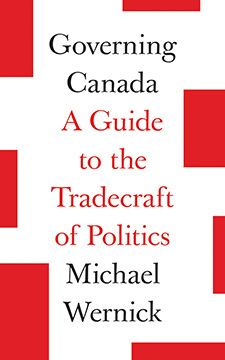Article original on Monday, October 25, 2021
When Michael Wernick retired as Clerk of the Privy Council in spring 2019 after nearly 40 years in the federal bureaucracy, including three as Canada’s top public servant, he could have written a memoir about his experiences with four prime ministers and dozens of senior politicians.
His intimate access to power and the country’s decision-making apparatus, often from a desk in the corner the Cabinet meeting room, would have provided countless pages of material.
Instead, the adjunct professor and fellow at Carleton’s School of Public Policy and Administration, and a former member of the university’s Board of Governors, decided to write a very different book.
Gouverner le Canada : un guide sur l'art de la politique, released by UBC Press on October 25, is essentially a guide on how to govern effectively.
“It’s not a tell-all,” says Wernick, paraphrasing one reviewer’s response. “It’s a how-to.”

“Memoirs can have a very short shelf life,” he continues. “Lots of politicians and other people write them, and they can give you a glimpse of a particular time or set of experiences. But I didn’t want to write a memoir because it would have violated my sense of the roles I was in, which were roles of trust.”
In Washington, D.C., and other capital cities, former staffers race to publish books after their administrations leave office, frequently to settle scores or enhance their own reputations.
But Wernick’s juiciest stories involve Cabinet confidences and private conversations with the ministers he served under, and one of the keys to doing his job well was establishing and maintaining trust.
With an introductory chapter entitled “Power in the Capital” followed by three successive chapters offering advice to would-be PMs, ministers and deputy ministers, Gouverner le Canada takes the high road. It unlocks Wernick’s expertise and serves as a resource for an intended audience of aspiring politicians, policy and decision makers, business and non-profit leaders, diplomats, academics, students and the media, providing a detailed picture of how government works and the secrets to being successful.

